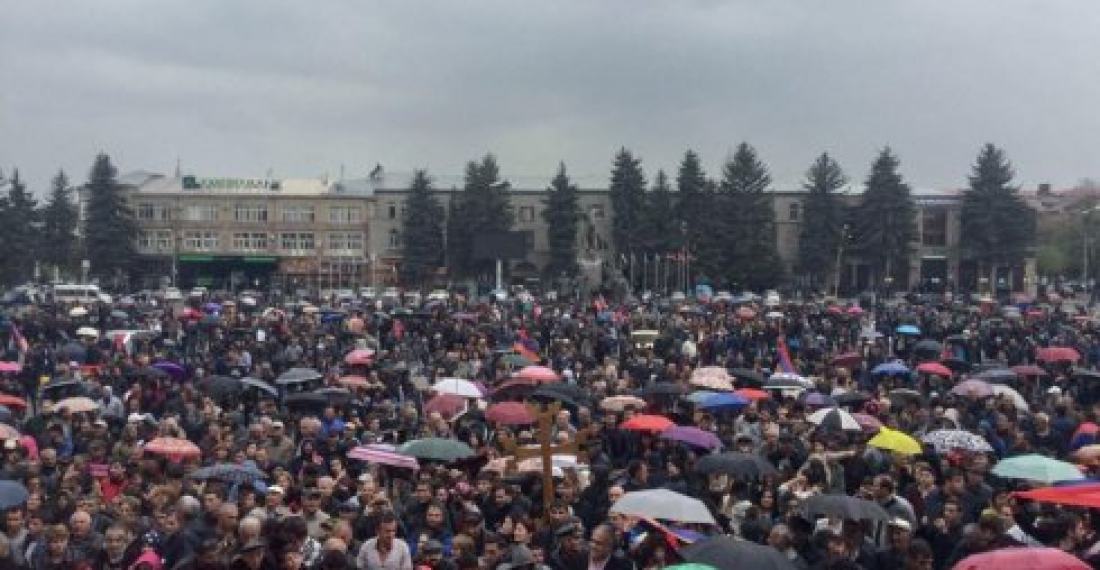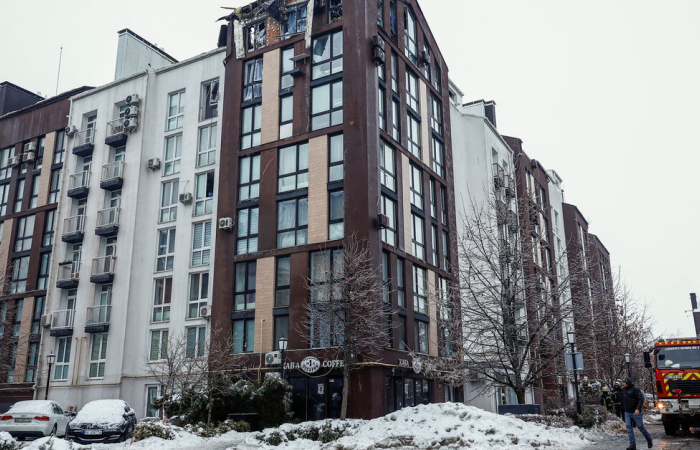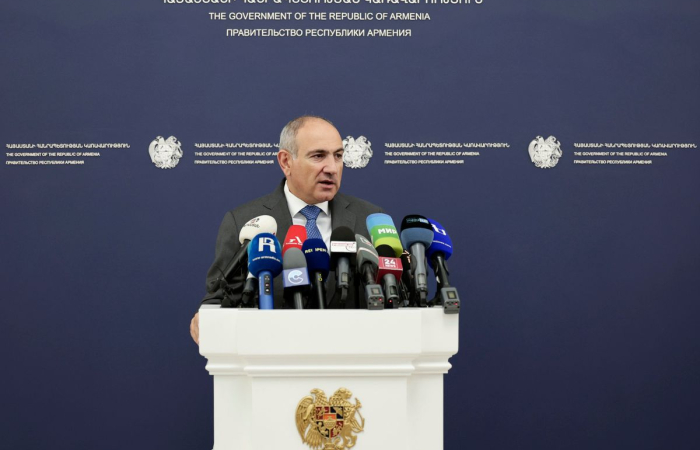The leader of Armenia's popular movement which has been pushing for a change in the country's government took his protest movement to the towns and regions of northern Armenia over the weekend, confirming that his appeal is nation-wide and further undermining the authority of the current government in Yerevan.
There were extradordinary scenes as Nikol Pashinyan's carcade passed through villages and settlements on the way to Armenia's second city of Gyumri on Friday (27 April) with people flocking to greet the opposition leader. Pashinyan addressed a large crowd in Gyumri city centre as thousands of people thronged to touch him and take pictures with him.
The scenes were repeated on Saturday when Pashinyan's motorcade travelled to ijevan and Vanadzor, where again thousands defied the rain to hear him deliver his now familiar message that the gains of the people's velvet revolution now needed to be formalised through his appointment as prime minister.
The show of strength confirmed that Pashinyan's movement was not limited to the capital Yerevan, but stretched to the cities, towns and villages throughout the country.
All eyes are now focused on the meeting of the Armenian National Assembly (parliament) which on Tuesday, 1 May, is expected to elect a new prime minister to replace Serzh Sargsyan who resigned on Monday after serving in the post for less than a week. Because the parliament is dominated by Sargsyan's political party - the Republican Party of Armenia, there appears now to be a deadlock between the wish of the people on the street and the parliament. Pashinyan is hoping that the republican Party MPs may be persuaded to give in and appoint him as prime minister, but the party leadership remained adamant on Saturday that it will not do so.
There were persistant rumours on Saturday that another opposition politician, more friendly to the current ruling party, may put himself forward for the post.
source: commonspace.eu
photo: An anti government raly in Gyumri on 27 April 2018 (picture courtesy of A1 plus news - Armenia)







